
Introduction
Car accidents are an unfortunate part of life, and back injuries are one of the most common consequences. A car accident victim- back injury can lead to chronic back pain, limited mobility, and a significant impact on one's quality of life. In this article, we'll discuss the different types of car- accident victims' victim- back injuries, how to recognize their symptoms, the diagnosis and treatment options, and what you can do to prevent them. We'll also touch on the legal considerations surrounding car- accident victims' back injuries.
Common Types of Car Accident Back Injuries
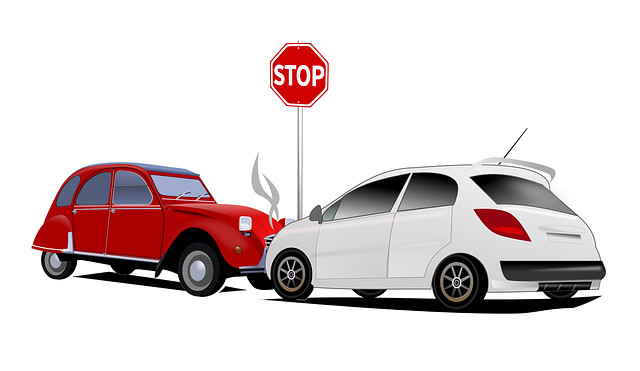
Whiplash
Whiplash is a soft tissue injury to the neck, upper back, and shoulders caused by a sudden, sharp acute pain and forceful back-and-forth movement of the head during a car accident. The rapid movement can strain the muscles, ligaments spinal discs, and tendons, leading to a serious neck or shoulder pain, pain afterwards, stiffness, and limited range of motion.
Herniated Disc
A herniated disc occurs when the soft, cushion-like material inside the spinal discs ruptures and leaks out. This can put pressure on spinal disc and the surrounding nerves, causing pain, numbness, and weakness in the back, legs, or arms. Car accidents can cause sudden impact and force on spinal disc and the spine, leading to herniated discs.
Spinal Cord Injury
Spinal and spinal cord injuries are one of the most severe types of back injuries that can occur during a car accident. These spinal cord injuries result from damage to the spinal cord, which can lead to temporary or permanent paralysis, loss of sensation, and other serious complications. The severity of a spinal cord injury in motor vehicle accidents depends on the location and extent of the damage.
Fractures
Fractures in the vertebrae, or bones of the cervical spine and spinal canal or cervical spine and spinal cord itself, can occur during high-impact car accidents. These fractures can lead to instability in the spinal column, nerve damage, total or partial paralysis, and chronic pain. In severe cases, a fractured cervical vertebrae injuries and may require surgical intervention to stabilize the spine and prevent further injury.
Lumbar Sprains
Lumbar sprains are injuries to the ligaments in the lower back. These injuries can result from the sudden twisting or bending of the spine during a car accident. Lumbar sprains can cause pain, stiffness, and limited mobility in the affected area.
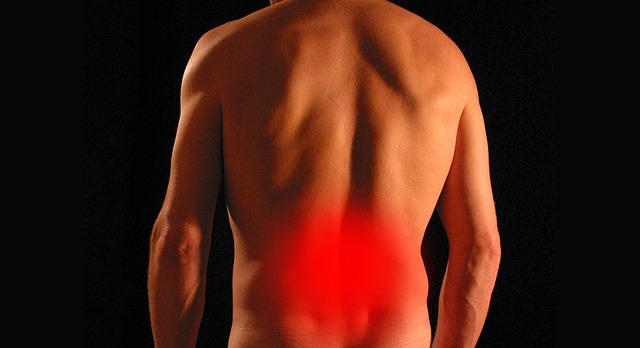
Symptoms of Car Accident Back Injuries
Symptoms of car accident back and neck injuries can vary depending on the type and severity of the injury. Some common back and neck injury symptoms can include:
- Pain in the neck, back, or shoulders
- Stiffness or limited range of motion
- Numbness or tingling in the arms or legs
- Weakness in the arms or legs
- Difficulty walking or moving
It's essential to seek medical attention if you experience any of these symptoms following a car accident, as early diagnosis and treatment can help with pain medication prevent long-term complications.
Diagnosis and Treatment
Diagnostic Imaging
Diagnostic imaging, such as X-rays, MRI scans, and CT scans, can help doctors identify the type and severity of car accident back injuries. These imaging tests provide detailed images of the spine and surrounding structures, allowing doctors to assess any damage and plan appropriate treatment.
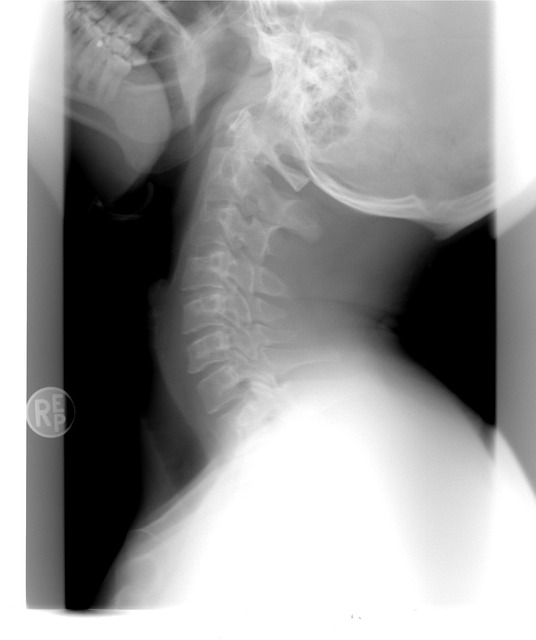
Pain Management
Pain management is a critical aspect of treating car accident back injuries. Doctors may prescribe medications, such as over-the-counter pain relievers, muscle relaxants, or anti-inflammatory drugs, to help manage back pain and reduce inflammation. In some cases, more potent prescription pain medications or injections may be necessary for severe back pain.
Physical Therapy
Physical therapy is often recommended to help patients recover from car accident back and neck injuries. A physical therapist will work with the patient to develop a customized exercise and stretching program to improve strength, flexibility, and range of motion. Physical therapy can also help reduce pain and prevent long-term disability.
Surgical Intervention
In some cases, surgical intervention may be necessary to treat severe neck and back pain or, after a car or accident, back and neck pain or spine injuries. Surgery may be required to repair damaged cervical vertebrae together, remove pressure from nerves, or stabilize the spine. The type of surgery will depend on the specific injury and the patient's overall health.
Prevention
While it's not always possible to prevent car accidents, there are steps you can take to reduce your risk of back injury:
- Always wear a seatbelt and ensure all passengers do the same
- Adjust your headrest to the correct height to support your head and neck
- Drive defensively and follow traffic laws
- Maintain a safe distance from other vehicles on the road
- Keep your vehicle well-maintained, including proper tire inflation and functioning brakes
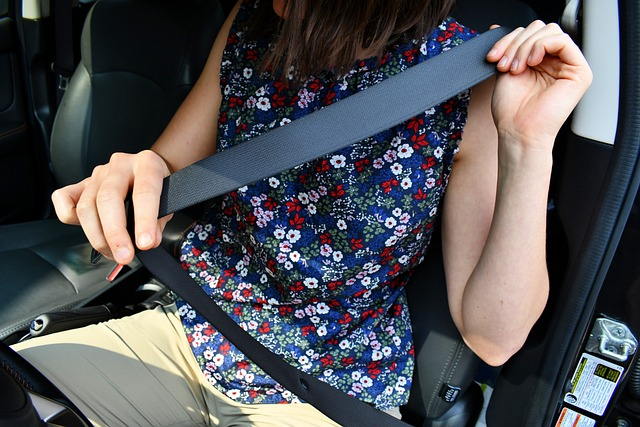
Legal Considerations
If you've suffered a car accident back injury, you may be entitled to compensation for medicalexpenses, lost wages, and pain and suffering. It's important to consult with an experienced personal injury attorney who can help you navigate the legal process and protect your rights. They can also help you gather evidence, negotiate with insurance companies, and ensure you receive fair compensation for your injuries.
Conclusion
Car accident, back pain and neck injuries can have a significant impact on your life, causing intense pain often, limited mobility, and long-term complications. Understanding the different types of most serious back injuries, and neck injuries, recognizing their symptoms, and seeking prompt medical attention are essential for your recovery. By following the appropriate treatment plan, practicing prevention strategies, and working with an experienced attorney, you can increase your chances of a successful recovery and protect your legal rights.
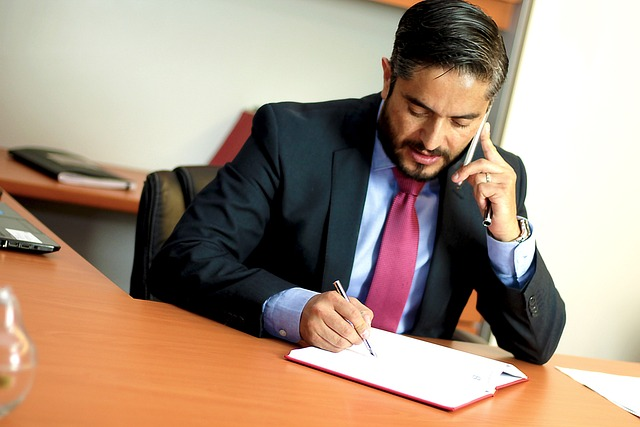
Frequently Asked Questions
1. How long should I wait to see a doctor after a car accident?
It's essential to see a doctor as soon as possible following a car accident, even if you don't immediately experience pain or other symptoms. Some injuries may not become apparent until days or even weeks after the accident, and early diagnosis and treatment can help prevent long-term complications.
2. Can I still seek compensation if personal injury lawyers claim I had a pre-existing back condition before the accident?
Yes, you may still be entitled to compensation if a car accident aggravated or worsened your pre-existing back condition. An experienced personal injury attorney can help you demonstrate the impact of the car accident injuries had on your condition and fight for fair compensation.
3. What if I can't afford medical treatment for my serious back and neck pain back and neck pain after a serious car accident caused an - accident back injury?
If you're struggling with the financial burden of your medical expenses and treatment, consult with a personal injury attorney. They can help you understand your options for seeking compensation to cover your future medical bills, expenses and other damages related to your injury.
4. How long does it take the human body to recover from pain after a car or most serious back or spine injuries, pain after a car crash or accident back injury?
Recovery time can vary depending on the type and severity of the back or neck injury itself. Some back and neck injuries may heal within weeks or months with appropriate treatment, while others may require ongoing care and rehabilitation for years. Your doctor can provide a more accurate timeline based on your specific injury and treatment plan.
5. What can I do to prevent long-term complications from a car accident back injury?
Following your doctor's recommendations, participating in physical therapy, and adhering to your prescribed treatment plan are crucial steps in preventing long-term complications from auto accident. Additionally, seeking prompt medical attention after a car accident can help identify and address injuries before they become more severe.
Long-Term Effects of Car Accident Back Injuries
Car and auto accident back injuries can have long-lasting effects on your overall health and quality of life. Depending on the severity of the auto back pain after a car accident back injury symptoms themselves, some of the potential long-term consequences common car accident injuries include:
- Chronic pain: Many people who suffer back injuries in car accidents experience ongoing pain that can persist for months or even years after the accident. This chronic pain can interfere with daily activities and negatively affect overall well-being.
- Limited mobility: Car accident back injuries can lead to reduced range of motion and mobility, making it difficult to perform routine tasks, engage in physical activities, or maintain an active lifestyle.
- Psychological impact: The pain, limitations, and lifestyle changes resulting from a car accident back injury can lead to emotional distress, anxiety, and depression. It's essential to address both the physical and psychological aspects of recovery to improve overall health and well-being.
- Impact on work: Back injuries can make it difficult or impossible to return to work, especially in physically demanding jobs. This can lead to lost wages, financial strain, and the need to find a new career path.

The Importance of a Support System
Having a strong support system in place is crucial for anyone recovering from a serious car crash or accident back injury. Friends, family, and healthcare professionals can all play essential roles in helping you through the healing process. Some ways a support system can help include:
- Emotional support: Dealing with the emotional impact of a car accident back injury can be challenging. Having friends and family to talk to and lean on during difficult times can make a significant difference in your emotional well-being.
- Practical assistance: Friends and family can help with everyday tasks, such as grocery shopping, cooking, and transportation, while you recover from your injury.
- Medical support: Working closely with your healthcare team, including doctors, physical therapists, and other specialists, is essential for a successful recovery. They can provide guidance, monitor your progress, and adjust your treatment plan as needed.
- Legal support: A personal injury attorney can offer valuable guidance and support in pursuing compensation for your injuries, helping to ease financial stress and ensure your rights are protected.
Alternative and Complementary Therapies
In addition to conventional medical treatments, some people with car accident back injuries may benefit from alternative and complementary therapies. These therapies can help manage pain, improve mobility, and promote overall well-being. Some examples include:
- Acupuncture: This ancient Chinese practice involves inserting thin needles into specific points on the body to relieve pain and promote healing.
- Chiropractic care: Chiropractors use spinal manipulation and other techniques to help restore proper alignment and function to the spine, potentially reducing pain and improving mobility.
- Massage therapy: Therapeutic massage can help relieve muscle tension, reduce pain, and promote relaxation.
- Yoga and Pilates: These low-impact forms of exercise can help improve flexibility, strength, and balance, which can be beneficial for those recovering from a car accident back injury.
Before trying any alternative or complementary therapies, it's essential to consult with your healthcare team to ensure they are safe and appropriate for your specific needs.
By exploring various treatment options, engaging a strong support system, and focusing on long-term recovery strategies, you can increase your chances of overcoming the challenges associated with car accident back injuries and regain your quality of life.

Nutrition and Lifestyle Factors in Recovery
Your diet and lifestyle can play a significant role in your recovery from a car accident back injury. Adopting healthy habits can help promote healing, reduce inflammation, and improve your overall well-being during the recovery process. Here are some tips to consider:
Eat a balanced diet: A diet rich in whole foods, fruits, vegetables, lean proteins, and whole grains can provide essential nutrients for healing and overall health. Additionally, foods high in omega-3 fatty acids, such as fish, nuts, and seeds, can help reduce inflammation.
Stay hydrated: Drinking plenty of water throughout the day can help keep your body functioning optimally and support the healing process.
Limit alcohol and caffeine: Consuming excessive amounts of alcohol or caffeine can interfere with your body's ability to heal and may exacerbate pain or inflammation. It's best to consume these substances in moderation or avoid them altogether during your recovery.
Prioritize sleep: Getting adequate sleep is crucial for healing and overall health. Aim for 7-9 hours of restful sleep each night and establish a consistent sleep schedule to support your body's natural sleep rhythms.
Manage stress: High levels of stress can impede your body's ability to heal and may contribute to chronic pain. Practicing stress management techniques, such as deep breathing exercises, meditation, or engaging in relaxing hobbies, can help you better cope with stress during your recovery.
Returning to Physical Activity
As you recover from a car accident back injury, it's essential to gradually reintroduce physical activity into your routine. Exercise can help improve strength, flexibility, and overall health, which can aid in the healing process. However, it's crucial to work closely with your healthcare team to ensure you're engaging in safe and appropriate activities for your specific needs.
Start slow: Begin with gentle, low-impact activities, such as walking or swimming, before gradually increasing the intensity and duration of your workouts.
Listen to your body: Pay attention to how your body feels during and after physical activity. If you experience pain or discomfort, it's essential to stop and consult with your healthcare team to determine if any modifications are needed.
Incorporate stretching and strengthening exercises: As you progress in your recovery, your healthcare team may recommend specific stretching and strengthening exercises to target the muscles and structures affected by your back injury. These exercises can help improve function, reduce pain, and prevent future spine injuries too.
Be patient and persistent: Recovering from a car accident back injury can be a long and challenging process. It's essential to be patient with your progress and stay committed to your recovery plan, even when it feels difficult.
By focusing on nutrition, lifestyle factors, and a gradual return to physical activity, you can support your body's healing process and improve your overall well-being during your recovery from a car accident back injury.
The Role of Mental Health in Recovery
Mental health is a crucial aspect of recovery from a car accident back injury. The emotional and psychological challenges associated with pain, limited mobility, and lifestyle changes can significantly impact your overall well-being. Addressing these challenges is essential for a successful recovery. Here are some tips for managing your mental health during the recovery process:
Seek professional help: If you're struggling with depression, anxiety, or other mental health challenges during your recovery, consider seeking the help of a mental health professional, such as a psychologist or counselor. They can provide valuable guidance and support to help you cope with the emotional impact of your injury.
Connect with others: Sharing your experiences and feelings with friends, family, or a support group can help you feel less isolated and provide a sense of understanding and camaraderie. Connecting with others who have gone through similar experiences can also provide valuable insights and advice.
Practice mindfulness: Mindfulness practices, such as meditation, deep breathing exercises, or yoga, can help you become more present and aware of your thoughts and feelings, making it easier to manage stress and negative emotions.
Set realistic goals: Setting attainable goals for your recovery can help you maintain a sense of progress and motivation. Be patient with yourself and recognize that healing takes time. Celebrate your achievements, no matter how small they may seem.
Engage in enjoyable activities: Participating in hobbies and activities you enjoy can help lift your spirits and provide a sense of accomplishment and satisfaction. Find creative ways to adapt your favorite pastimes to accommodate any limitations you may have due to your back injury.
By prioritizing your mental health and addressing the emotional challenges associated with recovering from a car accident back injury, you can enhance your overall well-being and increase the likelihood of a successful recovery.
Conclusion
Recovering from a car accident back a spinal disc injury is a complex process that involves addressing physical, emotional, and psychological aspects of healing. Understanding the different types of spinal cord injuries and spinal injuries are, recognizing their symptoms, and seeking prompt medical attention are essential for your recovery. Furthermore, focusing on nutrition, lifestyle factors, mental health, and a gradual return to physical activity can support your body's healing process and improve your overall well-being during your recovery.

